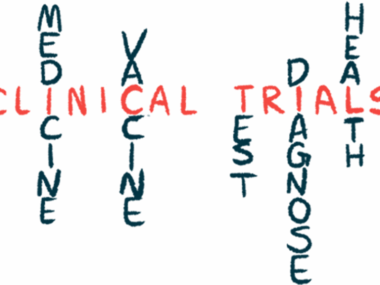Prix Galien USA award goes to CSL and uniQure for Hemgenix
Treatment is first, only gene therapy approved for adults with hemophilia B
Written by |

Hemgenix (etranacogene dezaparvovec), the first and only gene therapy approved for adults with hemophilia B, has won this year’s Prix Galien USA award in the category of Best Product for Rare/Orphan Diseases.
The award — the nation’s top prize for leading-edge advances in life sciences — was received by uniQure, Hemgenix’s developer, and CSL Behring, its global marketer.
“CSL is humbled and honored to receive a Prix Galien award for Hemgenix,” Bill Mezzanotte, MD, head of research and development at CSL, said in a company press release. “We thank The Galien Foundation for acknowledging the enormous promise and hope that Hemgenix offers to eligible people living with hemophilia B.”
“Hemgenix represents a major milestone in the field of genomic medicine and ushers in a new treatment paradigm for eligible people living with hemophilia B,” said Matt Kapusta, uniQure’s CEO. “It gives us great pride that after many years of development, this important gene therapy is now being made available by CSL to patients in geographies around the world.”
How does Hemgenix work in hemophilia B?
Hemgenix is given as a onetime infusion into the vein to prevent bleeding episodes in hemophilia B, a genetic disorder caused by mutations in the F9 gene, which provides instructions for producing factor IX (FIX), a blood clotting protein. It’s the second most common type of hemophilia, after hemophilia A, and is estimated to occur in nearly 1 in 25,000 male births.
The therapy is indicated for patients using FIX prophylaxis, or preventive, treatment, or those who are experiencing or have a history of life-threatening bleeding episodes. Hemgenix may also be prescribed for those who have repeated, serious bleeding episodes that occur spontaneously.
Formerly known as EtranaDez, or AMT-061, it delivers a working iteration of the F9 gene to liver cells via a viral vector called adeno-associated virus 5 (AAV5). Once in the liver, the working gene is released from the AAV5 vector and liver cells employ its instructions to independently produce FIX. This is expected to heighten the levels of FIX and help to prevent and manage bleeds.
Hemgenix’s approval in the U.S. in November 2022 was based largely on data from an ongoing Phase 3 trial called HOPE-B (NCT03569891) that’s assessing its safety and efficacy in men, ages 18-75, with moderate to severe hemophilia B, over five years.
Its participants had stable and enduring increases in FIX activity levels. Six months after infusion, FIX activity levels reached a mean of 39% of normal. That percentage dropped to about 37% after two years. Nearly all (94%) the men treated with Hemgenix ceased their routine FIX infusions and no longer required prophylaxis for up to two years.
The therapy has also been granted conditional marketing authorization by the European Commission for European Union member states — in addition to Iceland, Liechtenstein, and Norway — and by the U.K. Medicines and Healthcare products Regulatory Agency. It has also been approved by Health Canada.
Prix Galien USA is in its 17th year of awarding prizes to scientific advances aimed at improving health.


